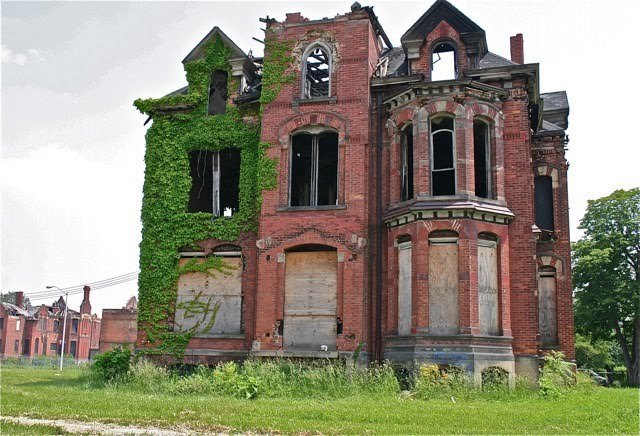Will MOOCs kill universities?

No.
Forbes carries an expansive piece on the implications of MOOCs and asks “Is Coursera the Beginning of the End for Traditional Higher Education?“.
Could high-quality MOOCs eventually do to traditional colleges and universities what Craigslist has done to classified advertising in newspapers and what Wikipedia has done to encyclopedias? In other words, could Coursera and its ilk replace a $250,000 college degree and decimate the world of brick-and-mortar colleges and universities?
A previous post highlighted many of the issues and challenges associated with MOOCs. In summary, some of problems with these developments include:
![Wonkhe coursera]() There is no proper academic quality assurance: by and large anyone can offer any course they want without any need for approval.
There is no proper academic quality assurance: by and large anyone can offer any course they want without any need for approval.
- Self-selection: courses are offered by self-selecting academics and followed by self-selecting students.
- Drop out rates are inevitably very high.
- There isn’t any meaningful or quality assured assessment.
- Non-accreditation: completion will get you an attendance certificate or a virtual badge rather than credit or a real qualification.
Of course this Forbes piece is just the most extreme example of the overblown hype surrounding MOOCs. As suggested in the earlier piece on these developments, MOOCs have more in common with the growth in adult education and the expansion of Mechanics’ Institutes in the late 19th Century. Unlike classified ads in newspapers and encyclopaedias, universities are built on more enduring foundations. Yes there will be challenges from the new online provision but the idea that Coursera and the like will kill off universities is just absurd. And all that content has to come from somewhere.
The most entertaining response to this kind of piece I have seen is over at the Easily Distracted blog. Under the headline “Listen up you primitive screwheads” we find the following spot on observatopn:
Again, pundits, let’s talk. MOOCs are damn interesting, you betcha, but seriously, if you think they’re about to solve the labor-intensivity of higher education tomorrow with no losses or costs in quality, you have a lot of learning to do. Not just about the costs and budgets of higher education today, but about the history of distance learning. Right now you guys sound like the same packs of enthusiastic dunderheads who thought that public-access television, national radio networks, or correspondence courses were going to make conventional universities obsolete via technological magic. And hey, if you’re that keen on the digital, skip the drinks, I’m happy to educate you via email.
Hear, hear.
I’m looking forward to when the fuss dies down a little and we can assess more soberly the contribution that MOOCs might make to higher education more generally. In the meantime I guess we’ll just have to put up with this kind of ‘is this the end for universities?’ silliness.

 There is no proper academic quality assurance: by and large anyone can offer any course they want without any need for approval.
There is no proper academic quality assurance: by and large anyone can offer any course they want without any need for approval.









I agree that this criticism of bricks and mortar universities is overblown, but equally assuming little or no impact is equally extreme. The internet did not destroy actual shops, but it did (as still is) ridding the high street of those that supply a simple commodity service with no experience attached. Similarly it is depressing to see universities, such as Nottingham, and others abjectly fail to counter the ‘Which degree?’ commercialised view of education as being both a commodity (how many hours do I get?) and instrumental approach (what will it give me?). Until those universities that are about both the discovery and dissemination of knowledge finally make an effort to provide a counter narrative, online packaged ‘knowledge’ will be a viable and cost-effective alternative.
Fair enough. I would say though that the counter narrative does exist but when you are faced with a regulatory regime which demands data on contact hours and first destinations (look out for the KIS widget mess coming to all university websites this autumn) it is hard to get across.
Sceptically, it’s reasonable to view the latest round of MOOCs as somewhere between very expensive brand promotion, and strategic loss leader for the real stuff inside the shop. They haven’t ruled out charging for things in the future, which means that they have the capacity to develop from something operating like a free app with in-game micropayments (the course is free but maybe we’ll end up charging for certificates etc.) to something that uses tiered subscription levels in which the most fully featured has a price tag to match.
So I think MOOConomics will play out in patterns that are pretty much like conventional content production, from textbook publishing to TV shows, and this is where they might impact, not by being an alternative to HE itself, but by being a new and apparently very adaptable source of content.
But not everyone will have the budget to produce them to a high standard, and so they have the potential to increase the divide between educational content creators (and copyright owners) and educational importers. Why pay your own faculty to develop a course that’s already available for free from U Michigan? Why not just hire adjunct tutors to staff and grade it? It’s a sensible proposition, at least until you take a course that’s available for free from MOOC U and it starts you thinking about how much of it is culturally suited to the place it comes from, and not necessarily to the social, historical or even educational context that you’re in as a learner. I’m not sure we’re really thinking enough about this yet.